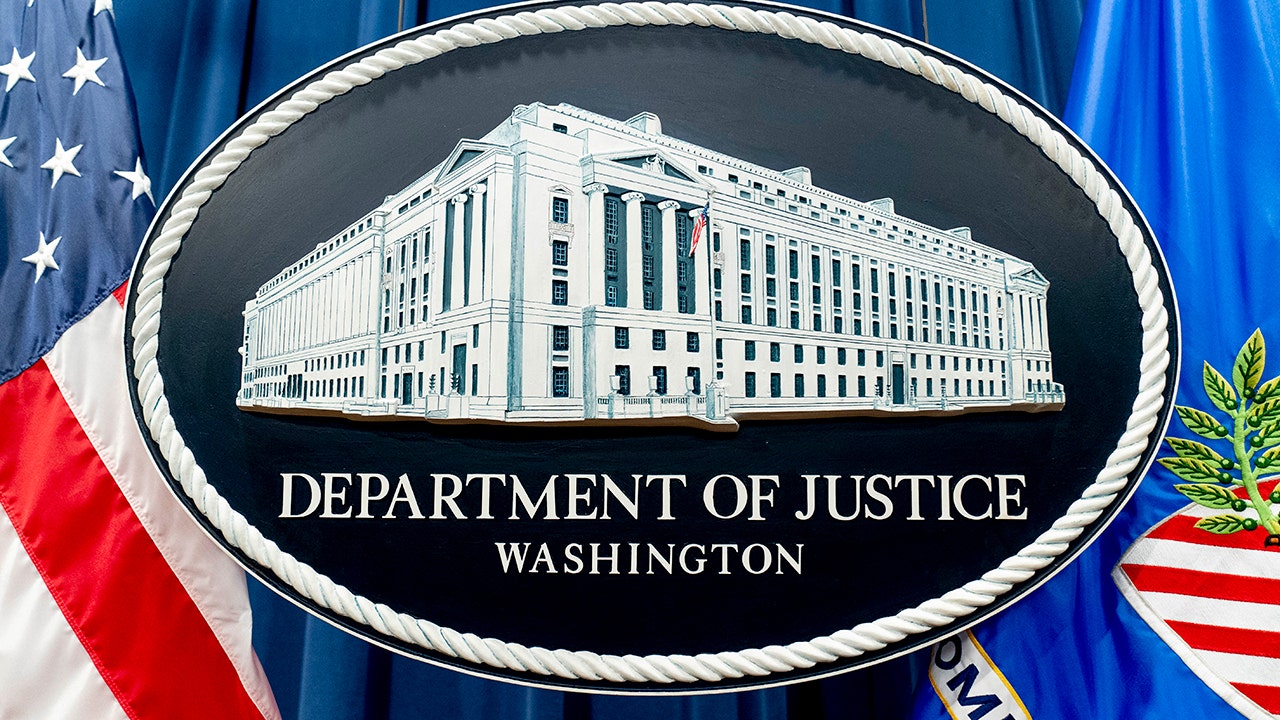Crypto
Safest Ways To Store Your Cryptocurrency In 2024

Table of Contents
Show more
Show less
Cryptocurrency investment is high-risk and complex. The market is volatile, regulators are still rallying to form a policy framework, and numerous scams and fraudulent activities have emerged in recent years. A Web3 security firm, DeFi, found that hackers stole around $2 billion in cryptocurrencies in 2023 and around $3.8 billion in 2022.
It’s no surprise that India, too, has witnessed numerous crypto scams, given that the market is forecasted to reach $343.5 million in 2024, with a user penetration rate of 18.78%. Remember that investing in cryptocurrency requires obtaining appropriate financial advice and investing in only what you can afford to lose.
Related: Why Is the Crypto Market Rising Today?
Why is it Essential to Store Your Cryptocurrency?
A cryptocurrency is a digital asset that exists on a network of computers running in a ledger of transactions built on blockchain technology. These digital tokens, like Bitcoin and Litecoin, do not exist in a physical form. Crypto wallets store cryptocurrencies, which is fundamental to safeguarding the ownership of digital assets.
A crypto wallet is software that creates and stores public and private keys, allowing users to send, receive, store, and monitor crypto assets. A public key contains a long string of alphanumeric characters shortened to make up a wallet address used to receive cryptocurrencies. A private key is required to process the transaction.
Both public and private keys are used to perform successful cryptocurrency transactions. As the name suggests, a public key (like a QR code) is visible to the public and is used to receive cryptocurrencies. The sender, on the other hand, needs a private key to process the transaction. A private key is private to users and protects their digital assets from unauthorized access.
Malicious actors may try every method to access the private key and steal cryptos stored in the wallet. Remember, if you accidentally lose or destroy the private key and seed phrases, your cryptos will be lost forever.
Types of Crypto Storage
Crypto Exchanges
Crypto exchanges are online platforms that help traders buy and sell digital currencies in exchange for cash, fiat currencies, or crypto tokens. They allow users to create an account, add funds to trade their investment in INR to buy cryptocurrencies like Bitcoin or Litecoin, trade crypto tokens for another, or receive the value of their return in cash to their bank account.
There are two types of crypto exchanges. A centralized crypto exchange (CEX) functions like a bank setup that traders trust to conduct transactions or store their digital assets. This means giving complete control to the centralized crypto exchange, including access to the private key. For this reason, CEX is called a custodial wallet, as users don’t have access to private keys.
On the other hand, a decentralized crypto exchange (DEX) leverages blockchain technology to add security to your trading. Such crypto exchanges eliminate third parties—and instead, buyers and sellers directly trade crypto tokens for one another without using cash or fiat currencies. DEXs are known for providing non-custodial wallets, also known as self-custodial, as they provide users complete control of their private keys.
Featured Partners
Legacy
Over 1 Million Investors Trust Mudrex for Their Crypto Investments
Security
Mudrex is Indian Govt. recognized platform with 100% insured deposits stored in encrypted wallets
Fees
Enjoy zero crypto deposit fees and industry’s best fee rates.
Multiple Award-Winning Broker
Listed On Deloitte Fast 50 index, 2022 Best Global FX Broker – ForexExpo Dubai October 2022 & more
Best-In-Class for Offering of Investments
Trade 26,000+ assets with no minimum deposit
Customer Support
24/7 dedicated support & easy to sign up
Welcome Bonus On First Deposit:
Get $30 in your verified trading account on your first deposit.
Variety:
Trade CFDs in crypto, forex, stocks, metals, commodities & more!
Intuitive & Cheap:
Designed for traders of all levels, from beginners to professionals.
Please invest carefully, your capital is at risk
Hot Wallet Storage
Hot wallets are online software for sending, receiving, storing, and monitoring crypto assets. They function like online banking, where users can access their crypto wallet and public and private keys via smartphones, desktops, laptops, and tablets connected to the internet. Users need to be connected online to access their crypto wallet.
Cold Wallet Storage
Cold wallets can be classified as offline wallets that use physical or hardware devices, such as a USB drive or smartcards, that store users’ public and private keys. It comes in various physical forms depending on the user’s needs. Some cold wallets also perform all the functions required to complete a transaction from a single online device. Cold wallets can also include paper-based documentation, which functions like physical shares. It can be used to store large amounts of cryptos given the security, however, the drawback is that the funds can be permanently lost if the devices are misplaced, lost, or damaged.
How To Compare the Types of Cryptocurrency Storage
When it comes to storing crypto safely, users can choose hardware wallets or self-custody wallets, however, that might be complicated for some people given their infrastructure, according to Nischal Shetty, an experienced software developer who founded a popular crypto platform in India, WazirX.
Shetty explained that crypto platforms comply with regulators and law enforcement to prevent illicit transactions and ensure multi-level KYC checks, ID verification for onboarding users, and fund withdrawals—overall required to provide a secure operating environment for all users.
Managing crypto assets via wallet has pros and cons, says Sumit Gupta, who co-founded the cryptocurrency trading platform CoinDCX.
Gupta explained that while traditional cold wallets offer robust security, they require careful handling of physical devices. Self-custodial wallets provide greater control but pose the risk of asset loss if seed phrases are forgotten. Centralized exchanges offer convenience but involve trusting a third party with funds.
It is crucial to choose a compliant crypto platform for legal protection and recourse in case of unforeseen events, added Edul Patel, founder of a crypto investment platform, Mudrex.
Patel explained that users need to regularly update security measures, such as two-factor authentication and encryption protocols, across all storage solutions to add protection against evolving threats to a great extent—all of which balances convenience with security, empowering investors to manage their cryptocurrency holdings effectively while minimizing potential vulnerabilities.
Featured Partners
Legacy
Over 1 Million Investors Trust Mudrex for Their Crypto Investments
Security
Mudrex is Indian Govt. recognized platform with 100% insured deposits stored in encrypted wallets
Fees
Enjoy zero crypto deposit fees and industry’s best fee rates.
Multiple Award-Winning Broker
Listed On Deloitte Fast 50 index, 2022 Best Global FX Broker – ForexExpo Dubai October 2022 & more
Best-In-Class for Offering of Investments
Trade 26,000+ assets with no minimum deposit
Customer Support
24/7 dedicated support & easy to sign up
Welcome Bonus On First Deposit:
Get $30 in your verified trading account on your first deposit.
Variety:
Trade CFDs in crypto, forex, stocks, metals, commodities & more!
Intuitive & Cheap:
Designed for traders of all levels, from beginners to professionals.
Please invest carefully, your capital is at risk
Frequently Asked Questions (FAQs)
What are the different types of crypto storage?
Cryptocurrencies can be stored in three different ways, as follows:
- Crypto exchange: Online marketplace where traders buy and sell cryptocurrencies in exchange for cash, fiat currencies, or crypto tokens.
- Hot wallet: Online software used to send, receive, store, and monitor crypto assets using desktops, laptops, and tablets connected to the internet.
- Cold wallet: These are physical or hardware devices that store users’ public and private keys, like USB or smart cards. The drawback of a cold wallet is that funds can be permanently lost if the devices are misplaced, lost, or damaged.
Can I store cryptos in a USB?
Yes—Cold wallets use physical devices, like USB or smart cards, to store large amounts of cryptocurrencies, and come with a set of security features to access the device. However, you can lose crypto assets permanently if the devices are misplaced, lost, or damaged.
What is a crypto wallet?
A crypto wallet is software that creates and stores public and private keys, allowing users to send, receive, store, and monitor crypto assets.

Crypto
Portland police alert public to court scam involving cryptocurrency – Newport Dispatch

PORTLAND — The Portland Police Department is warning residents about a scam where callers, posing as officials from the Cumberland County Sheriff’s Office, claim that the victims are in contempt of court for failing to appear as witnesses in a trial.
The scammers then demand payment of a substantial fine to avoid further charges, including arrest.
Victims are being instructed to make payments through Coinstar machines using Dogecoin or other cryptocurrencies.
The phone number used for the scam calls, when searched on Google, appears to be associated with the Cumberland County Courthouse.
Authorities urge anyone who receives such calls not to engage with the scammer.
Instead, they should contact the courthouse directly at 207-822-4200 to verify the legitimacy of the call.
Officials have clarified that the courthouse will never request payments over the phone.
Crypto
The First Web3 RPG From Saudi Arabia Astra Nova Launches a SocialFi Platform on Immutable zkEVM – Press release Bitcoin News

Crypto
Cryptocurrency won’t go mainstream until US solves its problems, says Chainalysis CEO

Cryptocurrency may not become a fully mainstream financial instrument until concrete regulations for the highly volatile industry are drawn up and enforced by authorities in the US, the chief executive of blockchain company Chainalysis has said.
While acknowledging that current cryptocurrency frameworks are “actually pretty good and functional”, the $2.33 trillion industry’s other issues need to be addressed, especially when it comes to protecting investors and consumers, Michael Gronager told The National.
The US, the world’s biggest economy that is also considered the most important financial market as the Federal Reserve sets the global tone for interest rates – should take the lead on this, he said.
“In finance, everyone looks towards to the US first trying to figure out what’s going on, and then whether the regulation has already been created in other places first … it’ll be changed to adapt the US framework once it’s figured out,” Mr Gronager said.
“We’ve seen that in the past; we’ll see that again with crypto. So, we are kind of waiting for the US to solve some of these things and that’s where things stand today.”
The US granted the cryptocurrency sector a major victory in January when it finally approved the country’s first spot Bitcoin ETFs, clearing the way for trading on the New York Stock Exchange, the Cboe Global Markets and the Nasdaq Composite, and making Bitcoin more accessible to retail traders.
ETFs “definitely boosted the sentiment of crypto”, Mr Gronager said.
In addition, US authorities have been vigilant in clamping down on the sector, running after irregularities and illicit activity within the ranks.
Their actions have claimed some of the biggest names, including Sam Bankman-Fried, the former chief executive of FTX who was sentenced to 25 years in prison for fraud, and former Binance chief executive Changpeng Zhao, who in November pled guilty to charges related to money laundering and was handed a four-month prison sentence on April 30.
“The FTX case was so unique; it was less tied to crypto and more tied to a traditional fall because everything happened behind closed doors, and was related to how that company was run by the people behind it,” Mr Gronager said.
“The lesson learned by the industry and regulators is that if it’s a non-regulated business in your jurisdiction and you don’t have any ways to think that your funds would be good, they’re probably not good,” he added, also noting the collapses of Three Arrows and Celsius Network in 2022.
The fates of those companies, coupled with job losses at the time, triggered the so-called cryptocurrency winter, a period in which the sector cooled down, dragging Bitcoin to below its key $20,000 psychological level in June 2022 and wiping out about $2 trillion from the digital asset industry’s market capitalisation.
“Celsius and Three Arrows were the symptoms of a way too hot finance market. And the newest kids in finance were the crypto exchanges and some crypto projects – they were definitely the ones who overleveraged completely,” Mr Gronager said.
“And some of them did it in an illegal way. And that was basically what we saw there. We also saw established venture capital firms over-leveraging their investments and getting in big trouble, but most of them actually survived it.”
For the broader finance industry, Mr Gronager believes there is a “solid and pretty good framework” that tackles money laundering and terrorist financing.
Applied to the cryptocurrency sector, the $4.3 billion settlement between Binance and the US Department of Justice last November is an indication that authorities have taken a stance and this is being taken very seriously.
“We had all the big banks … each getting billion-dollar fines; now you’re seeing the same in the crypto space and that raises the bar, ensures compliance will be high priority, and a good understanding and responsibility of the industry,” Mr Gronager said.
Among the most notable fines imposed on financial institutions for compliance failures are JP Morgan Chase’s $2.6 billion settlement in the aftermath of the Bernard Madoff Ponzi scheme in 2014 and Credit Suisse’s $5.28 billion payment in 2017 for misconduct on sales of residential mortgage-backed securities.
“There’s now a price on not doing compliance or making mistakes.”
Regulations are key to establishing trust in the cryptocurrency industry, and governments should play an active role in ensuring this, said Mr Gronager, who counts the UAE as among “the top three to five in terms of the global landscape” of finance and cryptocurrency, as well.
He said the Emirates has had “a good way of working with the [crypto] industry, ensuring that there’s adequate regulation”, at par with other global financial centres such as New York, London and Singapore.
The total value of cryptocurrency transactions in the UAE from the first quarter of 2023 to the first quarter of 2024 hit $39.2 billion, data provided by Chainalysis to The National shows.
Institutional investors, those who invest more than $1 million, made up the biggest chunk of UAE transactions with 59 per cent, while professional investors ($10,000 to $1 million) were at 39 per cent and retail investors (up to $10,000) were at 2 per cent, the data showed.
“The UAE, in general, is very advanced and sophisticated in [cryptocurrency] use cases and is probably one of the few markets where decentralised finance is more relevant than centralised exchanges, demonstrating that the level of sophistication is pretty high,” Mr Gronager said.
Updated: May 16, 2024, 3:00 AM
-

 Politics1 week ago
Politics1 week ago'You need to stop': Gov. Noem lashes out during heated interview over book anecdote about killing dog
-

 Politics1 week ago
Politics1 week agoBiden takes role as bystander on border and campus protests, surrenders the bully pulpit
-

 News1 week ago
News1 week agoMan, 75, confesses to killing wife in hospital because he couldn’t afford her care, court documents say
-

 Politics1 week ago
Politics1 week agoRFK Jr said a worm ate part of his brain and died in his head
-

 World1 week ago
World1 week agoPentagon chief confirms US pause on weapons shipment to Israel
-

 Politics1 week ago
Politics1 week agoHere's what GOP rebels want from Johnson amid threats to oust him from speakership
-

 World1 week ago
World1 week agoPro-Palestine protests: How some universities reached deals with students
-

 World1 week ago
World1 week agoConvicted MEP's expense claims must be published: EU court
/cdn.vox-cdn.com/uploads/chorus_asset/file/24401979/STK071_ACastro_apple_0002.jpg)












